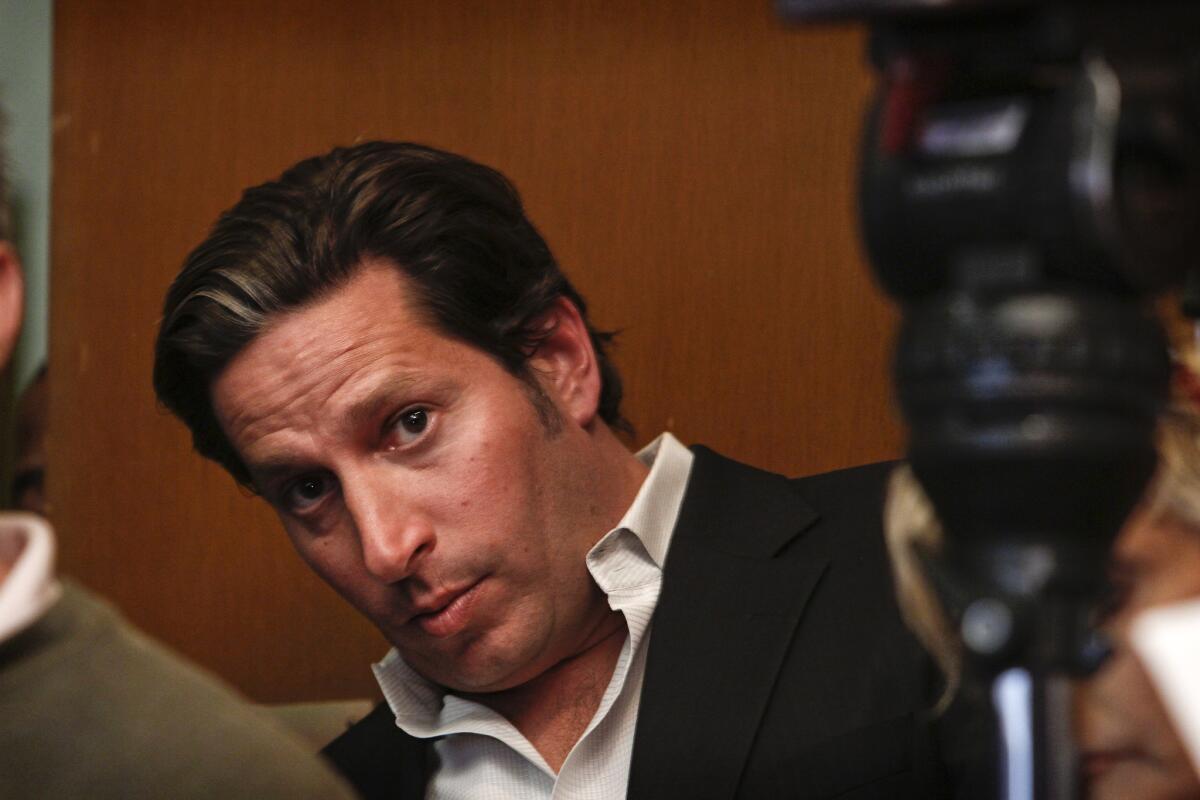Coliseum official who worked for rave producer also hired a lobbyist

- Share via
An administrator for the Los Angeles Memorial Coliseum Commission who doubled as a paid consultant to a producer of raves also hired his own City Hall lobbyist as he sought to keep the controversial events at the stadium, according to records and interviews.
A firm owned by Todd DeStefano, then an events manager for the commission, retained the lobbyist to meet with City Council members and other officials after June’s Electric Daisy Carnival rave, which was marred by numerous drug overdoses and the death of a teenage girl, city records show.
The Times has reported that DeStefano worked for the producer of Electric Daisy, Insomniac Inc., at the same time he represented the commission in planning and overseeing security and medical services for the rave. As a result, he has become the subject of investigations by local and state authorities.
Lobbyist Paul Vizcaino registered DeStefano’s company, Private Event Management, as a client in late September, during a moratorium on raves that the Coliseum panel imposed because of the problems at Electric Daisy, according to the city Ethics Commission’s database.
During the final quarter of 2010, Vizcaino reported being paid $6,250 by Private Event Management, whose address in city records is a mail box at a UPS Store near the Coliseum.
DeStefano and Vizcaino met in July with aides to city Councilmen Jose Huizar and Bernard Parks, as well as officials from the Los Angeles Fire and Police departments, to address the outcry over 15-year-old Sasha Rodriguez’s death from an Ecstasy overdose, participants in the session said. Vizcaino and a second member of the three-lobbyist Urban Strategy Group are former staff members for Huizar, whose office hosted the gathering.
The councilmen’s staffers did not know that DeStefano had been working for Insomniac at the time of the meeting, said Parks and Huizar spokesman Rick Coca. They said the aides had assumed that Vizcaino was Insomniac’s representative, although he was not registered with the city as a lobbyist for that company. Vizcaino was a lobbyist for another rave producer, Hard Events, in July, according to the Ethics Commission’s records.
“It’s harmful,” Parks said of DeStefano’s ties to Insomniac. “It should have been put on the table when the meeting was set up.”
Coca said that if Huizar’s staffers had known of DeStefano’s Insomniac connection, “we would have laughed him out of the room.”
Vizcaino and DeStefano did not respond to interview requests. An Insomniac executive could not be reached.
In the weeks before the meeting, Huizar had introduced a council motion — Parks seconded it — calling for a review of safety measures for raves and possible limits on attendance. Much of the review is pending, Coca said.
Parks and Coca said Vizcaino did not influence their offices’ positions on raves. Parks, whose district includes the Coliseum, is a supporter of Electric Daisy, in part because it brings jobs and tax revenue to South Los Angeles. Coca said Huizar “hates these kinds of events and has done everything in his power to close them down.”
The Coliseum Commission lifted the rave moratorium in November. The panel is a joint authority of the state and the city and county of Los Angeles, but the city takes the lead in providing police and paramedic services for Electric Daisy.
Commission General Manager Patrick Lynch, who had given DeStefano permission to work for Insomniac, said he did not know that DeStefano hired a lobbyist. Until last month, DeStefano continued to work for the commission and Insomniac, advocating bringing Electric Daisy back to the Coliseum.
After learning that DeStefano was on Insomniac’s payroll, Commissioner David Israel directed Lynch to make DeStefano choose between his two employers. DeStefano quit the commission staff in January to pursue a full-time career as an events promoter.
Israel, who became commission president this month, said he also was unaware that DeStefano had hired Vizcaino.
“It’s unfortunate,” said Israel, who has withdrawn his support for a return of Electric Daisy to the Coliseum because of the DeStefano affair.
The Los Angeles County district attorney’s office is looking into whether DeStefano’s employment by Insomniac was a criminal conflict of interest. The state Fair Political Practices Commission is investigating whether DeStefano broke laws by failing to disclose income from an outside source and by engaging in a conflict of interest.
The FPPC inquiry is also examining whether DeStefano violated “revolving door” statutes that require government employees to wait at least one year before lobbying their former agencies. The FPPC imposes administrative penalties but could refer evidence of criminal violations to state or local prosecutors.
Last year’s Electric Daisy was the largest rave ever held at the Coliseum, with an announced attendance of 185,000 over two days (Lynch said the turnstile count was 161,049). About 120 attendees were taken to the hospital, mostly for drug intoxication. Police made 118 arrests.
Afterward, LAPD officials said there should have been more security at the event. Deputy Chief Pat Gannon told The Times that he frequently clashed with DeStefano over safety issues and said the commission manager reneged on a promise to deploy mobile security cameras at the Coliseum.
Security preparations were important to Insomniac because the company had to pay many of the costs. DeStefano and Lynch have denied that Insomniac’s finances had anything to do with the commission staff’s safety standards.
Lynch said spending on Coliseum security staffing, off-duty LAPD officers hired by Insomniac for the event and emergency medical services had increased dramatically last year compared with the 2009 Electric Daisy.
More to Read
Sign up for Essential California
The most important California stories and recommendations in your inbox every morning.
You may occasionally receive promotional content from the Los Angeles Times.












